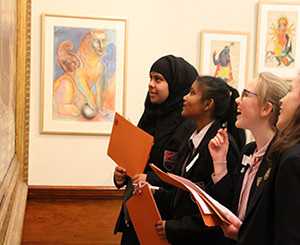When I was a kid, my experiences of ‘posh’ private schools were largely confined to getting beaten at rugby by them and youthful interest in black and white St Tinian’s films. Unsurprisingly, I used to be terrified of private school kids.
My experience and understanding of independent schools has broadened somewhat since – but I think the sector, as a whole, is still misunderstood. For some institutions, independence has historically meant aligning too closely with isolation; little wonder perhaps that we might be perceived as aloof. This is not the modern-day ambition of the sector and not the way forward for the benefit of children in our schools. We all have a shared responsibility to play our part in improving the prospects of young people in our localities.
As I mentioned at the Bradford Grammar Speech Day last summer, when it comes to matters of social justice and mobility, the independent sector has both supporters and detractors. Many schools believe to the core of their charitable foundations that they offer something positive to foster social mobility in their localities. This might be achieved, for example, through partnership and outreach work or means tested fee assistance.
Around the regions, local government seems to ‘get it’ and is broadly supportive of practical cooperation between different types of school, college, university and businesses. Partnership work between state and independent schools is growing as can be seen from the Schools Together website or the ISC (Independent Schools Council) Celebrating Partnerships document. Such arrangements work best when they are not coerced by national policy, but reflect instead the capacity of schools to work together in bespoke fashion, tailored to local opportunities and needs. These principles have most recently found voice in the Joint Understanding that exists to support a relationship between ISC schools and the Government in response to the consultation “Schools that work for everyone.”
Bradford is a great place to be and the city is feeling more connected in many various ways. BGS is part of that growing civic interaction. We’ve learnt a great deal from, and have been greatly enriched by, our work with local partners, including The Linking Network. This is a fantastic national programme and our children have been spending time with pupils at the Oasis Academy, in Bradford, with whom we work as equal partners. The pupils say they have gained real value from the experience. They loved taking part in the sessions, doing things like team building with Lego and creating art murals together, and they reflected afterwards it had helped break down stereotypes between independent and state schools.
Jasmine, Year 9, told me: “I think they thought we would be really posh and snobby and some said they were scared to meet us. There was a stereotype that we wouldn’t like each other but that’s not how it was. It was good fun.”
Shree, also Year 9, added: “I thought they would be really different to us and when we met them there were some differences, but actually we’re all very similar. When we go to university, we’ll meet kids from state schools and they might be exactly like us, or they might be really different. We can still connect with them.”
These are all nice things to learn at an early age and we value greatly our relationship with The Linking Network that promotes such activity.
I remember when I left my state school and headed off to university I was surrounded by people from independent schools who seemed light years ahead of me. Yet I had brilliant teachers, a loving and supportive family and there was a spirit and character where I’m from that was in me. I think the X factor for success can come from diversity and breadth of experience. As modern independent schools, we are far more diverse and connected than our ‘traditional’ reputations allow. You can choose to see differences between schools, between people, or you can choose to see similarity – no matter who wins at rugby.
“I had brilliant teachers, a loving and supportive family and there was a spirit and character where I’m from that was in me. I think the X factor for success can come from diversity and breadth of experience.
As modern independent schools, we are far more diverse and connected than our ‘traditional’ reputations allow. You can choose to see differences between schools, between people, or you can choose to see similarity – no matter who wins at rugby.”
